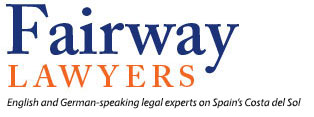QUESTION
In the next few days I shall be signing the deeds of purchase of an apartment before a Notary public and the official in charge of drawing up the documents has told me that in accordance with new legislation concerning the prevention of tax fraud I shall be required to disclose and provide documentary evidence of all payments made concerning the operation.
Is it possible that the notary could refuse to grant the deed if we do not justify all payments in the way that I have been told.
ANSWER
It is true that a recently enacted law establishing measures to prevent tax fraud has reformed the Law on the Organisation of Notarial Activities whereby notaries are now required to identify, in certain public documents, the means of payment employed by the parties in question.
The public documents affected are those relating to acts or agreements which constitute, declare, transfer, place a charge on, modify or cancel title obtained in exchange for valuable consideration concerning the ownership and other real rights relating to property.
In this type of public documents it should be specified whether the price was received prior to or simultaneous with the granting of the deed, the amount involved, the method or means of payment employed and the amount of each instalment.
If the grantor of the instrument refuses to declare the means of payment either wholly or partially, he will be warned by the Notary who will record said circumstance in the deed, that the Spanish tax authorities will be notified accordingly.
In addition, if documents evidencing the means of payment of all or part of the price are not produced, the Notary will be obliged to ask and establish not only the reason for not supplying the necessary documentation, but also the dates and form of payment used and record these details in the deed, the grantor being liable to all legal effects for the accuracy of the statements made in this regard.

